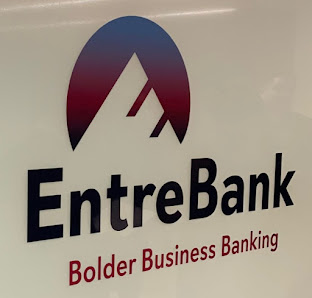Thursday, March 31, 2022
Sterling in Mich. revises 4Q earnings upward
Citizens in Okla. designated a women-owned institution
Wednesday, March 30, 2022
Cross River parent company raises $620 million
FDIC seeks comments on climate-change proposals
Nicolet in Wis. announces another bank acquisition
Tuesday, March 29, 2022
Seacoast to enter Miami with purchase of Apollo Bank
MetaBank to rebrand as Pathward
Fla. banker Rita Lowman joins wealth manager's board
First Carolina raises $115M for expansion efforts
MNB in Nebraska to buy Doniphan Bancshares
Monday, March 28, 2022
Norwood Financial identifies next leader
Hometown Financial to buy Randolph Bancorp in Mass.
Berkshire in Mass. planning new mobile app with Narmi
Bison State Bank in Kan. hires new CEO

Bank First got second shot to buy Denmark Bancshares
Citizens in RI creates overdraft-free checking account
Sunday, March 27, 2022
A look at how states are blocking CU-bank deals
Friday, March 25, 2022
FDIC to seek comments on handling bank mergers
Northrim in Alaska taps insider as next bank president
Mortgage lender agrees to buy Wisconsin bank
Hancock Whitney to eliminate NSF fees
Generations in NY selling insurance agency book of business
Thursday, March 24, 2022
Farmers National entering Pittsburgh with Emclaire deal
Wednesday, March 23, 2022
Mississippi law would undercut credit union-bank mergers
Ameris joins list of banks curbing overdraft fees
Burke & Herbert continues expansion past northern Va.
Alliance Data rebrands as Bread Financial
Citizens-Investors merger secures Fed approval
Tuesday, March 22, 2022
Community Bancorp in Kan. to buy Quarry City Savings
Fed notices reveal three small bank mergers
Former Howard CEO Scully finds second act
Proposed Colo. bank to delve into precious metals
Monday, March 21, 2022
De novo EntreBank opens in Minnesota
EntreBank has opened in Bloomington, Minn., just seven months after filing its application with the Federal Deposit Insurance Corp.
The de novo opened after receiving conditional approval from the FDIC in January and raising nearly $45 million of initial capital, exceeding what was stipulated in the agency's order.
Everett Co-operative in Mass. plans mutual conversion
Everett Co-operative Bank in Massachusetts is planning to convert from a mutual to a stock-owned company.
The $733 million-asset mutual recently filed an application with the Federal Reserve tied to the planned conversion. It would operate as a unit of ECB Bancorp.
ECB said in a prospectus that it plans to sell 7.9 million to 12.2 million shares of common stock. Net proceeds would likely range from $76.4 million to $119.7 million.
ECB said that half of the net proceeds will be invested in its bank, while 8.4% will be loaned to its employee stock ownership plan. About 41% of the net proceeds will remain at the holding company.
ECB said it will contribute $600,00 in cash and 260,000 shares of common stock to a charitable foundation it plans to form in connection with the conversion.
Keefe, Bruyette & Woods will serve as the sole manager for the offering.
Everett Co-operative earned $4 million in 2021.
Dispute surfaces over nixed Amalgamated deal
Sunday, March 20, 2022
Liberty in Conn. overhauls fees for deposit account
Friday, March 18, 2022
BNY Mellon warns of 1Q revenue hit tied to Russian ops
USAA hit with $140M in fines tied to BSA issues
Organizing group looks to form bank in Colorado
MainStreet Bancshares president to retire
Trustmark selling corporate trust business
Thursday, March 17, 2022
Huntington hires Truist exec to oversee consumer banking
JPMorgan Chase to buy Irish software firm
Business First to raise $47M through stock offering
Business First Bancshares in Baton Rouge, La., plans to raise about $46.8 million from selling common stock. The $5.5 billion-asset company...
-
A group has filed a request to form a new bank in Houston. Organizers of Houston Bank of Commerce & Trust applied with the Federal De...
-
Highland Bank in St. Paul, Minn., has agreed to buy Boundary Waters Bank in Ely, Minn. The $630 million-asset Highland said in a press relea...
-
First Bancorp in Southern Pines, N.C., has agreed to buy GrandSouth Bancorp. in Greenville, S.C. The $10.5 billion-asset First Bancorp said...

